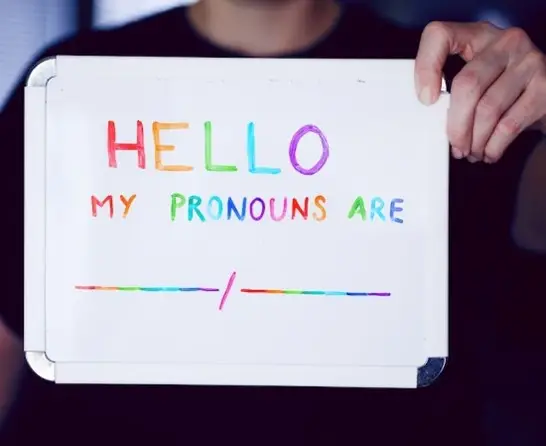2. Ask the Right Questions to Capture Intersex Data
Intersex people are often excluded from research, including research that collects data about other LGBTQIA+ identities. For example, no national surveys in the United States include questions about intersex people or variations in sex traits or reproductive anatomy. On the other hand, a lot of research related to intersex people has caused great harm by pathologizing variations in sex traits, not prioritizing autonomy, and contributing to stigma and marginalization.
RTI’s commitment to equity-centered research means that we learn about and adapt our data collection strategies over time as best practices evolve. A report commissioned by NIH discusses the importance of collecting data that accurately reflects intersex traits. Just like other demographic characteristics, intersex traits and/or identity impacts one’s life experiences and should not be overlooked.
Data about intersex people cannot be captured by asking about sex assigned at birth or gender identity, but rather requires a separate question during data collection. Collecting comprehensive sexual orientation, gender identity, and intersex data, as relevant, allows us to learn about the resiliencies and needs of the LGBTQIA+ community and use that information to advance equity.
3. Support Open Science
In January 2023, the White House Launched the Year of Open Science with the goal of making federally funded research findings more accessible to the public, and promoting innovation, trust, and equity. As intersex-inclusive research emerges, supporting Open Science is critical to disseminate findings and best practices for future intersex-inclusive efforts to both researchers and the public alike.
RTI embraces the Year of Open Science by encouraging staff to publish in open access channels, respecting diverse cultures and promoting racial justice and equity in our research, maintaining security and privacy, collaborating with clients on open science initiatives, and embracing reproducible research.
4. Use Resources for Intersex Research
There are several useful resources that can provide additional guidance on including intersex people in research. LGBTQIA+ Rising, a working group within RTI’s Global Gender Center working to advance LGBTQIA+ research at RTI, developed an internal resource on inclusively engaging intersex people in research. By sharing the highlights of that guidance in this blog, we hope to support equitable LGBTQIA+ research.
A 2023 documentary film, Every Body, highlights the history of intersex inclusion in medicine and tells the stories of three intersex activists. This film brings critical insights related to intersex inclusion to a wider audience. It also provides evidence-based, updated information from leaders at the National Institutes of Health Sexual & Gender Minority Research Office.
RTI researchers are constantly generating new insights on LGBTQIA+ equity for the research community and beyond. Visit the RTI Press publication “To whom it may affirm” for more on this growing area of study.




